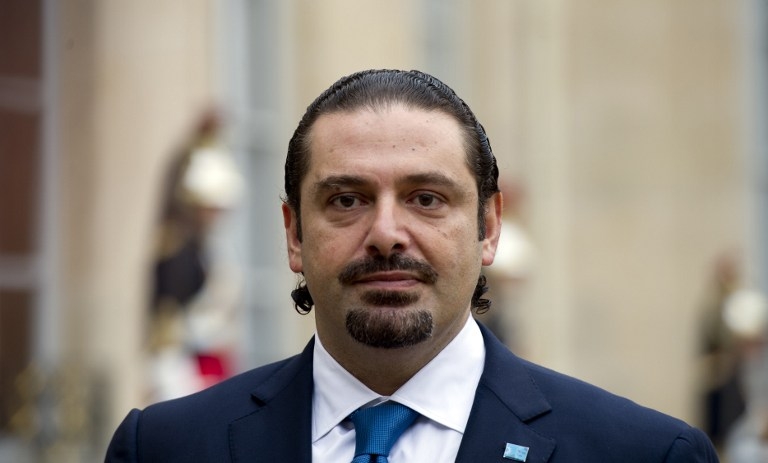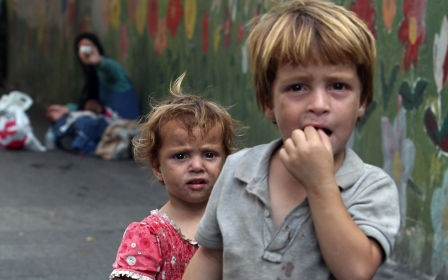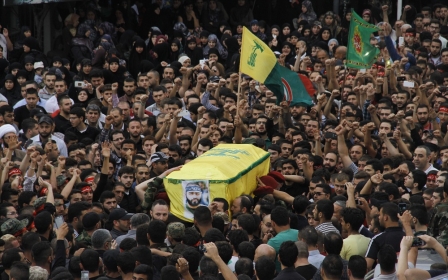Hariri backs army after restored calm in Tripoli

Calls for a "Sunni revolution" in Lebanon are an attack on the country's internal harmony, former Prime Minister Saad Hariri warned Tuesday, rejecting calls on young Sunni men to join armed groups in an attempt to undermine the Lebanese Army.
“These calls are [associated] with suspicious plots to end the Lebanese formula and replace it with incomplete mini states based on sectarianism,” he said. “We cannot support anyone who violates the rules of coexistence among the Lebanese."
Hariri also urged Lebanese leaders and citizens of all sects and from across the political spectra, to “immediately launch national talks to agree on a new president.”
Lebanon has been without a head of state since May, when former President Michel Sleiman’s term ended with lawmakers failing to elect a successor due to lack of consensus.
Hariri also called for an integrated security strategy spearheaded by the Lebanese Army and security forces to “deal with the repercussions of the Syria war on Lebanon.”
“Time for awareness of the dangers entailed in the deliberate involvement in the Syrian [war] has come,” the statement said. “It is time to end the clashes between the Lebanese border and the Syrian front,” reported the Daily Star.
These statements came after the Lebanese Army, backed by helicopter gunships, took full control of the northern city of Tripoli by seizing the last bastion of militant groups blamed for attacks on military posts.
"The army has taken over Bab al-Tebbaneh," a spokesman told AFP on Monday, adding troops had captured 162 militants since Friday.
The soldiers carried out house-to-house searches and made several weapon seizures.
The military campaign put an end to four days of fierce clashes between Lebanese soldiers and IS and Nusra Front militants. The clashes left 42 people dead and some 150 wounded.
Among the fatalities were 23 gunmen, 11 soldiers and eight civilians. The wounded included 92 soldiers, and 63 gunmen and civilians, security sources told the Daily Star.
The fighting - the deadliest bout of Syria-related violence in Lebanon’s second city since the 2011 outbreak of the civil war in Syria - caused major damage to the impoverished Sunni district of Bab al-Tebbaneh, which groups who were accused of ties to al-Qaeda had used as their stronghold. It was also the first to pit militants against the army in Tripoli.
A 72-year-old woman said she had never before been forced out of Bab al-Tebbaneh, "not even during the civil war" that raged in Lebanon from 1975 to 1990.
"But this time, I had to flee my house, along with my five grandchildren. I am in charge of them, because their father is in jail," said Umm Mohammed Jaaburi, wearing a blue nightgown and white headscarf.
"The violence was unprecedented," she said.
Thousands of civilians poured out of the neighbourhood, which is home to some 100,000 residents, during a lull in fighting late on Sunday.
The United States, meanwhile, voiced support for the Army after the Tripoli clashes.
Washington joined with Lebanon “as it mourns the loss of the soldiers and officers who died defending Lebanon from terrorist groups,” State Department spokeswoman Jen Psaki said. The US also “commends the bravery of the personnel of the Lebanese armed forces who are working to keep Tripoli and Akkar safe for all residents.”
Psaki said Washington stood by the country and its government, adding: “We condemn those who seek to sow chaos in Lebanon and are confident that the Lebanese people will persevere if they stand united in the face of this threat.”
She also said that the US is “very confident” in the abilities of the army and state security institutions, adding they “alone have the legitimate role of defending Lebanon under the direction of the government.”
Army under attack
Schools and universities were closed across Tripoli on Monday because of the violence, reported AFP.
The coastal city has seen repeated clashes between Sunni militants sympathetic to rebel fighters in neighbouring Syria and Alawites loyal to the government of Bashar al-Assad.
The army has also come under growing attack by Sunnis who accuse it of colluding with the Shiite militant group Hezbollah in its intervention in the Syrian conflict on the side of the Assad leadership.
In August, a deadly battle in the Sunni enclave of Arsal near the Syrian border ended with militants who had streamed into Lebanon from Syria withdrawing after a truce, while taking hostage 30 soldiers and policemen.
Three of those soldiers have since been executed, and Syria's al-Qaeda affiliate Nusra Front had threatened to kill a fourth because of the Tripoli violence.
The group issued a statement later Monday saying it had decided to "stop the killing" of the soldier after fighting in Tripoli subsided.
Residents of Bab al-Tebbaneh and other parts of Tripoli have long felt they suffer the worst of the country's political instability.
"We always pay the price," Khaled Breiss, a father of three who was forced to flee Bab al-Tebbaneh, told AFP.
"I am among the people who welcomed a Syrian refugee family in my own home. How can it be that I am now a refugee in my own country?"
New MEE newsletter: Jerusalem Dispatch
Sign up to get the latest insights and analysis on Israel-Palestine, alongside Turkey Unpacked and other MEE newsletters
Middle East Eye delivers independent and unrivalled coverage and analysis of the Middle East, North Africa and beyond. To learn more about republishing this content and the associated fees, please fill out this form. More about MEE can be found here.




